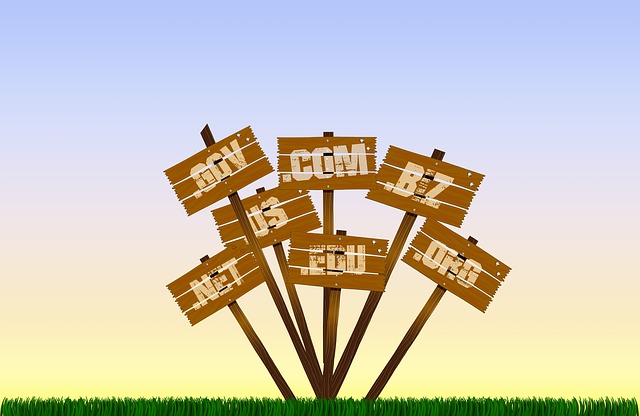Today I became the intended “victim” of a domain name/intellectual property scam that is going around. Although “scam” is probably not the right word for it, because it’s not technically illegal, it’s just sleazy and opportunistic. These companies prey on fear and intimidation, and a lack of knowledge, in those they target. And, in contacting me, without realizing that this is my business, they messed with the wrong person.
I only feel compelled to write about the experience because it has happened to two of my web design clients in the last two months, which resulted in fearful calls from each of them that someone was trying to steal the rights to their company names.
In the past, I have seen these same types of scenarios come out of China, but now they are coming out of countries like the Netherlands, where the people you are speaking to on the phone have absolutely no language barrier when talking to you. This makes it easier to believe the BS they are spewing, and some can be convincing.
They are using the guise of fake “trademark protection” to intimidate you into purchasing a product (another domain) from them.
Always, always, always make sure you, or a trusted person, has control of your domain name! In the online trifecta of domain name, web hosting, and website, I genuinely believe that domain name is the MOST IMPORTANT aspect of the whole thing.
How This “Scam” Works
It begins with an email or phone call from them telling you they have halted the registration of a variation of your URL in order to protect your intellectual property rights but will release it to their “client” if you aren’t interested in purchasing the domain name from them.
The phone call I received was from a company claiming to be the “Trademark Office,” saying that someone has registered a variation on a domain I already owned.
So let’s say you own the “.com” version of your domain, they will say someone is registering the “.net” or “.org” version and they are checking to see if it was someone from your office.
Of course, it wasn’t, so you start to panic. They will then proceed to tell you that you can either purchase the “.net” version, to block the other party from getting it, or they will go ahead and release it for use by their “client.”
The goal, of course, is to get you to buy the domain on the spot, from them, at an incredibly inflated price. That domain name is then in their possession, as the registered agent for you, and it will then renew every year with them after that, at whatever price they want to charge, I suppose.
The Dangers of Dealing With These Type of Companies
I can’t even begin to tell you the dangers of falling for a scam like this.
First, you will be giving your credit card information for the purchase to someone who you didn’t initiate contact with AND who is located overseas! That, in and of itself, is fraught with all kinds of potential problems.
Second, when they register the domain name, they are quite likely going to register it under their own name, address, and email. That means that it doesn’t truly belong to you, even though you paid them for it. I am sure if you ever wanted to port it away from them it is going to be a painful process. When they jack their price up three times what they initially charged you on renewal, it will be difficult, at the least, and more likely, impossible to gain control of your domain and put it elsewhere.
Third, you are going to be paying, my guess is, at least four to five times more for the same domain name then if you went out and bought it yourself on the open market.
Domain Name Arbitrage is the Game
Keep in mind, most of the time these calls are made by people who are “feeling” you out to see if you are willing to bite. They aren’t buying the domain name first and then reselling it to you. They would go broke if they did that. They are poised and ready to pull the trigger once you have given them your credit card info.
I recognized that these people weren’t really with my country’s (real) Trademark Office right away, despite their convincing name and voicemail message. So, before I even engaged them in conversation, I had looked up the domain name in question.
It was the “.net” version of one of my website domains. It is a very particular domain, which included my name in it, so I doubted anyone was looking for the “.net” variation of it in the first place.
It was, of course, available for purchase at a rate of under $20 by the company where I buy most of my domains. That means no one, not even them, technically owned it yet. I went ahead and put it in my shopping cart, awaiting checkout.
My Personal Encounter With Them
With the domain name safely in my online shopping cart, I called the “Trademark Office” back, in response to their bizarre message about someone trying to infringe on my “intellectual property rights.” I already knew what this was going to turn out to be, because, as I mentioned earlier, I had two clients who fell victim to this already, but I wanted to play their little game.
The nice young man on the other end started the phone call by reading through what was an obvious script, pretty much as outlined above. He then asked me if the “application” was made by me or someone else at my place of business. Of course, it was not.
He proceeded to ask if I wanted to protect that domain for a “very low fee,” which incidentally was about five times higher than the one sitting in my shopping cart that I was looking at. He said by purchasing it right then, during the phone call, they would make sure I was protected and ensure my “property rights” as the true owner.
I asked who he was with again, and he said one more time the “Trademark Office.” What trademark office, I asked. He stammered and said it again — the “Trademark Office.” I asked, where? He said they were based in the Netherlands.
Okay, now we were getting somewhere. I am in the United States. I explained to him that I know the process for trademarking and copyrighting, and this phone call wasn’t it. He stammered a bit and said his “client” was in the Netherlands and if I wasn’t the owner of the domain and didn’t want it, they would “let them” purchase it.
Now, if you have ever bought a domain name you know that this isn’t exactly the process that is used. You pretty much go online, make sure someone else doesn’t already own it, and buy it. You aren’t generally putting in an “application” with a “Trademark Office” to do so.
I laughed and said they couldn’t purchase it because someone already owned it, as I hit the “finalize payment” button my computer screen.
He argued and said they could, and that no one owned it, and if I didn’t buy it their client who “registered an application” for it would be free to continue with the purchase through them.
I told them to refresh their computer screen, as I knew they were looking at the status of the domain in question on it.
I could feel the sigh in the voice of the man on the phone, as he did a refresh to the page, and he said a few seconds later, “Are you Nora Kramer?”
“Yes,” I said.
The man then turned to someone else and said, “She just bought it. What do I do now?”
I could hear some indistinct chatter between the two, and then he said, “Okay, never mind. I can see you own it now.” Then he hung up on me.
I beat them to the punch. They were prepared to purchase it right then and there, charge me five times the amount and pocket the rest. Since I bought it, they could no longer do that.
Final Thoughts
Be in charge of your own domain.
Be very careful when it comes to your domain names. Always, always, always make sure you, or a trusted person, has control of your domain name! That is the one thing I try to stress with all of my clients.
In the online trifecta of domain name, web hosting, and website, I genuinely believe that domain name is the MOST IMPORTANT aspect of the whole thing. To not have control of that, you could potentially lose your entire online website presence. New hosting can always be obtained, and a new website can be built, but getting a lost domain name back is darn near impossible.
Full disclosure — many of my clients prefer that I handle the whole thing when it comes to their domains, from registering their domain to setting it up to interface with their website, but I am someone that they have chosen to do business with, not a random company calling them and trying to “sell them” something. I am their “trusted person.” And, they know where they can find me and how long I have been in business.
I have also had clients ask to transfer their domains away from me to their own registrar and it has never been an issue or problem for either of us. I encourage it, in fact. I just offer the service to those who are less technically inclined and don’t want to deal with any of it.
Remember the login info for your domain registration company.
Hold on to your login info with the company you purchase your domain from. I can’t tell you the countless clients I have dealt with who didn’t have this information.
Make sure your domain is set to auto-renew every year.
Don’t lose your domain due to missing a renewal date. Set it up from the start to auto-renew every year, so you don’t have to think about it. It doesn’t hurt to also add it as a recurring event on your calendar, so you remember to check the status every year.
Keep the credit card on file with your domain registrar updated.
Also, make sure that the credit card you have on file with your registrar is always current and not expired. Many registrars won’t let you know that your credit card is expired. They will then let your domain “expire” and charge you outrageous fees to “reinstate” it. It’s a money maker for them because they know how important domains are to companies.
If you have run afoul of this type of scam before, feel free to comment below and share!
Photo by JanBaby (Pixabay) (cc)
- How a Boutique Web Design Agency Offers More Personalized Service - June 23, 2025
- When Should You Redesign Your Website? 7 Warning Signs - June 20, 2025
- We’re Honored: Named One of the Best Web Design Blogs in Florida by FeedSpot - June 10, 2025





